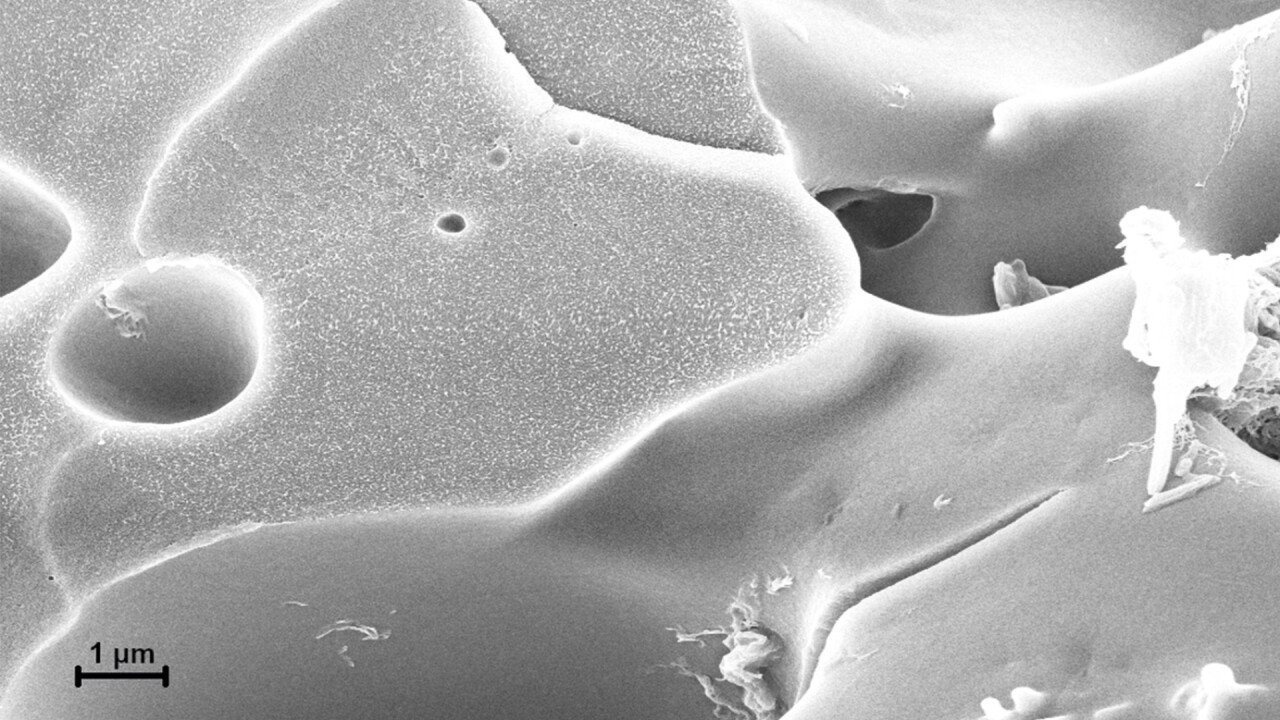Chemists from Constance led by Helmut Cölfen have now presented the next generation of their mineral plastic in the journal Small Methods. The plastic is produced without solvents and can be converted back into its flexible structure by adding water, making it recyclable.
The plastic was developed in Helmut Cölfen's working group, which presented the material - a so-called mineral plastic - in 2016. Although the plastic met with great interest from industry due to its outstanding material properties and innovative manufacturing process, it still had one disadvantage: its chemical composition made it difficult to biodegrade.
New basic building block for greater environmental compatibility
Instead of petroleum-based building blocks such as polyacrylic acid, the plastic now consists of polyglutamic acid. This natural biopolymer is available in large quantities and can be obtained sustainably, for example from biotechnological production using microorganisms. In addition, there are already a large number of microorganisms in the environment that can break down polyglutamic acid. The mineral plastic is harder than conventional plastics, non-flammable and has self-healing properties. It is produced at room temperature in water and without toxic solvents.
Our new mineral plastic has the same positive properties as the old one but has the significant advantage that its basic component - polyglutamic acid - can be produced using microorganisms and is completely biodegradable.
Helmut Cölfen, Group Leader of the working group Cölfen
Support from colleagues in Biology
To prove that not only the starting component but also the new mineral plastic itself is biodegradable, the chemists asked David Schleheck and postdoc Harry Lerner from the Department of Biology at the University of Konstanz for support. In various degradation experiments, biologists were able to show that microorganisms found in forest soils, for example, began metabolising the mineral plastic after a few days. After 32 days, the microorganisms had completely degraded the plastic. As a result, the researchers' mineral plastic is not only biodegradable, but also sustainable.
